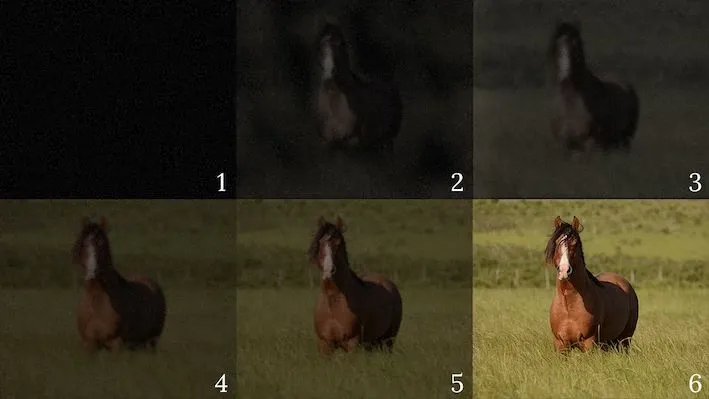
Can you imagine an apple?
- What color is it?
- How does the light reflect off of it?
- Where is this apple?
- Is it blurry? Two-dimensional? Abstract?
On Monday night, sitting around a coffee table with some of my closest friends where we get together to share delicious food, fellowship, and talk about Jesus, we started talking about imaginations. We all tried to imagine an apple.
Everyone had a different experience and different answers to these questions. As for my wife and I? We just thought of an apple. We didn't have answers to these questions. Everyone had a mild to vivid image in their mind of an apple, somewhere, somehow.
I asked them, "so you literally see an apple when you close your eyes?" and the answer was a resounding "yes, of course," when all I saw was darkness.
What's wrong with me?
Surely if I was the odd-one-out, there had to be something wrong with me, and I stayed up all night reading and thinking about this condition I came to know as aphantasia. Purportedly, an estimated 1-3% of the population have this condition. It was very jarring for me to discover that after 23 years of never actually seeing the things that I imagined, that most people actually do. I always thought when someone asked me to imagine something, I was just supposed to think of that thing, not actually see it in my mind.
My whole view on life and the human experience has been flipped upside down. What other senses of our lives do we experience differently but never think to tell one another?
I also rarely ever dream, which I think also ties into this imaginative ability nicely.
How to describe this phenomenon
It can be difficult to explain what it means to not be able to imagine things, especially when most people have been doing it their whole lives. This excellent article succinctly explains how to describe aphantastic imagination to someone. In summary, it goes like this: think of a horse. Which image best fits your experience?

If your answer is 1, you're probably aphantastic.
Why me?
I find it interesting to think about why I've been cursed/(blessed?) with this condition. I think that it is likely a coping mechanism from my childhood. I don't remember much, but what I do remember is that it was very traumatic, and the little bit that I do remember is all of the really terrible things. I believe that it is those experiences that has driven my mind to try and block out memories and keeps me from being able to vividly relive those experiences.
I don't think this is the only catalyst that causes condition, but I believe it definitely plays a part.
How it effects my life
Aphantasia is really just a unique part of my human experience and I don't think it really effects my day-to-day life very much. When I think about it, it is sometimes sort of a blessing. Horror is my favorites genre of any medium; books, movies, games. But I know some people who detest horror, and even some that don't celebrate Halloween out of fear of the images that will stick in their mind. I, obviously, have never struggled with that, and it's always intrigued me how it can effect some people and not others. Well now I can explain that. I'm able to experience traumatic things without ever having to vividly, visually relive them, which I take as a blessing.
Another impact I see is that it may help me to focus better than the average person when I need to, as my imagination is very inactive.
Conclusion
Back to the beginning of this article, I asked you to imagine an apple. How well were you able to do so? I'm curious really how many people out there experience the same thing as me, but have no idea that's not the norm. I've also heard of hyperphantasia, which is the opposite of aphantasia. I've even heard of people who can taste, feel, and smell experiences just from imagination. So I hope you share about your unique experiences, too 😄